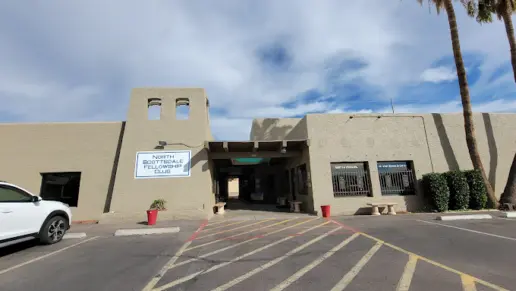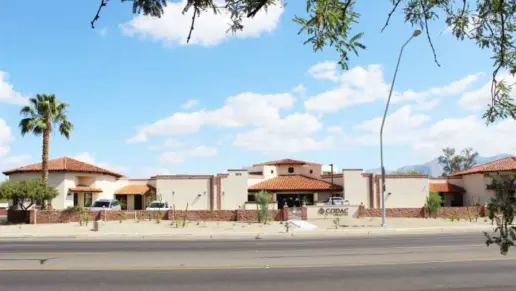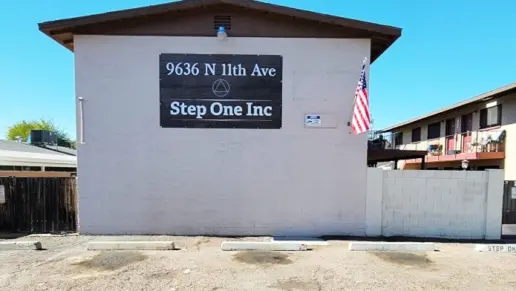They don't seem to care for their patients. Not very knowledgeable and not willing to help you when needed. I wouldn't recommend this place, don't waste your valuable time.
About ChangePoint Integrated Health Center
ChangePoint Integrated Health, in Snowflake, Arizona, is a mental health care facility and alcohol and drug rehab for adolescents and adults. They offer medication-assisted treatment (MAT) for clients in opioid recovery and intensive outpatient (IOP), general outpatient (OP), and aftercare programs. Dedicated services are available for young adults, seniors, justice-involved persons, and persons with co-occurring disorders.
Their intensive outpatient programs (IOP) are designed for clients requiring high-level supervision and support, including those stepping down from inpatient care or at an elevated risk of relapse. Clients receive medical and mental health assessments and personalized care care plans. Clients requiring higher-intensity inpatient care will be referred. Clients engage in intensive individual, group, and family counseling and age-specific, recovery-focused life-skills training. Court-mandated programs and DUI education classes are available. Clients in opioid recovery may enroll in their evidence-based MAT program for longer-term Suboxone therapy.
Their general outpatient programs (OP) allow clients to continue working in their recovery through ongoing addiction counseling, recovery education, and ancillary support services.
Their aftercare programs enable a complete continuum of care aligned with clients’ evolving needs and may include housing and employment assistance, transportation assistance for seniors, and referrals for additional services.
ChangePoint Integrated Health is state licensed and accredited by CARF.
ChangePoint Integrated Health accepts most major insurance plans, such as Cigna, BlueCross BlueShield, Humana, Aetna, and others. They also accept Medicare, Medicaid, and military benefits. Contact your provider to verify coverage because out of network benefits can vary. Financial assistance is available.
Latest Reviews
Rehab Score
Other Forms of Payment
Medicaid is a state based program that helps lower-income individuals and families pay for healthcare. Medicaid covers addiction treatment so those enrolled can use their coverage to pay for rehab. When a program accepts Medicaid the client often pays very little or nothing out of their own pocket.
Private insurance refers to any kind of healthcare coverage that isn't from the state or federal government. This includes individual and family plans offered by an employer or purchased from the Insurance Marketplace. Every plan will have different requirements and out of pocket costs so be sure to get the full details before you start treatment.
Self-pay involves paying for treatment out of your own pocket. You can use savings or credit, get a personal loan, or receive help from family and friends to fund your treatment. If you don't have insurance or your insurance plan doesn't cover a specific program, self-pay can help ensure you still get the care you need.
Financial aid can take many forms. Centers may have grants or scholarships available to clients who meet eligibility requirements. Programs that receive SAMHSA grants may have financial aid available for those who need treatment as well. Grants and scholarships can help you pai for treatment without having to repay.
Medicare is a federal program that provides health insurance for those 65 and older. It also serves people under 65 with chronic and disabling health challenges. To use Medicare for addiction treatment you need to find a program that accepts Medicare and is in network with your plan. Out of pocket costs and preauthorization requirements vary, so always check with your provider.
Military members, veterans, and eligible dependents have access to specific insurance programs that help them get the care they need. TRICARE and VA insurance can help you access low cost or no cost addiction and mental health treatment. Programs that accept military insurance often have targeted treatment focused on the unique challenges military members, veterans, and their families face.
Addiction Treatments
Levels of Care
Treatments
The goal of treatment for alcoholism is abstinence. Those with poor social support, poor motivation, or psychiatric disorders tend to relapse within a few years of treatment. For these people, success is measured by longer periods of abstinence, reduced use of alcohol, better health, and improved social functioning. Recovery and Maintenance are usually based on 12 step programs and AA meetings.
Drug rehab in Arizona is the process of treating individuals who are dependent on a particular addictive drug. Because addiction is complex, this treatment typically includes a variety of interventions that address the many physical and emotional issues involved.
Many of those suffering from addiction also suffer from mental or emotional illnesses like schizophrenia, bipolar disorder, depression, or anxiety disorders. Rehab and other substance abuse facilities treating those with a dual diagnosis or co-occurring disorder administer psychiatric treatment to address the person's mental health issue in addition to drug and alcohol rehabilitation.
A combined mental health and substance abuse rehab has the staff and resources available to handle individuals with both mental health and substance abuse issues. It can be challenging to determine where a specific symptom stems from (a mental health issue or an issue related to substance abuse), so mental health and substance abuse professionals are helpful in detangling symptoms and keeping treatment on track.
Opioid rehabs specialize in supporting those recovering from opioid addiction. They treat those suffering from addiction to illegal opioids like heroin, as well as prescription drugs like oxycodone. These centers typically combine both physical as well as mental and emotional support to help stop addiction. Physical support often includes medical detox and subsequent medical support (including medication), and mental support includes in-depth therapy to address the underlying causes of addiction.
Programs




Clinical Services
In individual therapy, a patient meets one-on-one with a trained psychologist or counselor. Therapy is a pivotal part of effective substance abuse treatment, as it often covers root causes of addiction, including challenges faced by the patient in their social, family, and work/school life.
Amenities
-
Private Setting
Accreditations

The Commission on Accreditation of Rehabilitation Facilities (CARF) is a non-profit organization that specifically accredits rehab organizations. Founded in 1966, CARF's, mission is to help service providers like rehab facilities maintain high standards of care.
CARF Accreditation: Yes
Contact Information
423 Main St
Snowflake, AZ 85937


